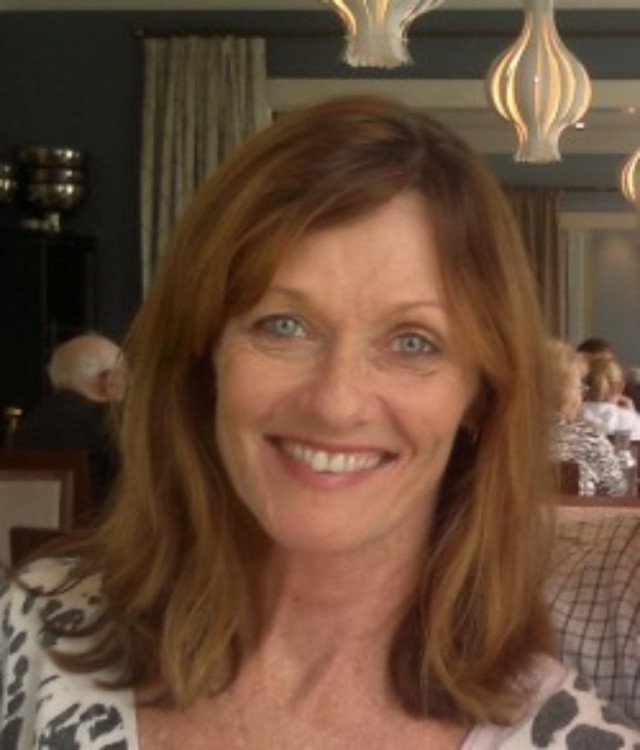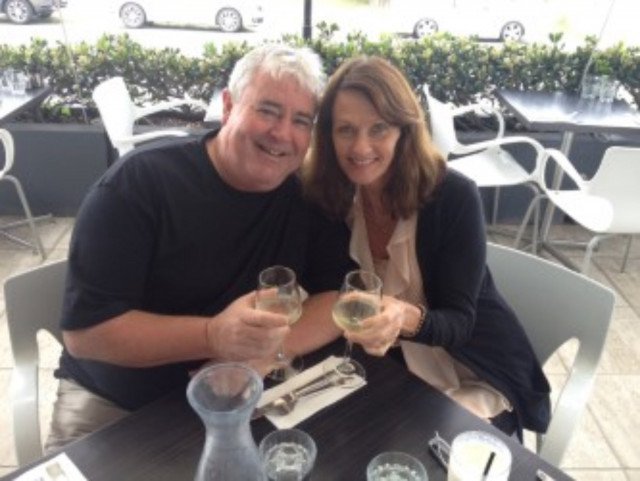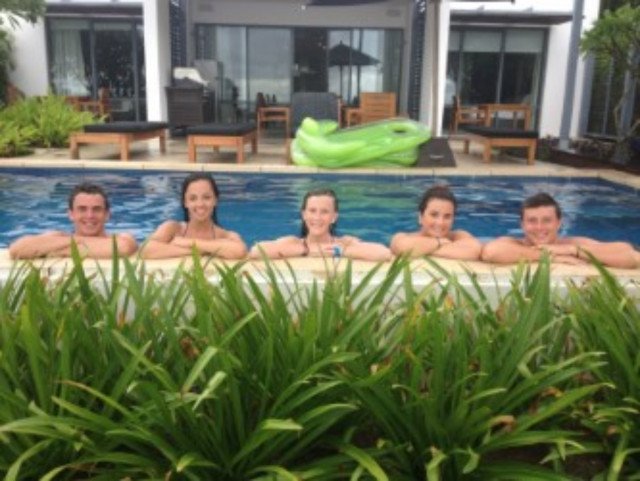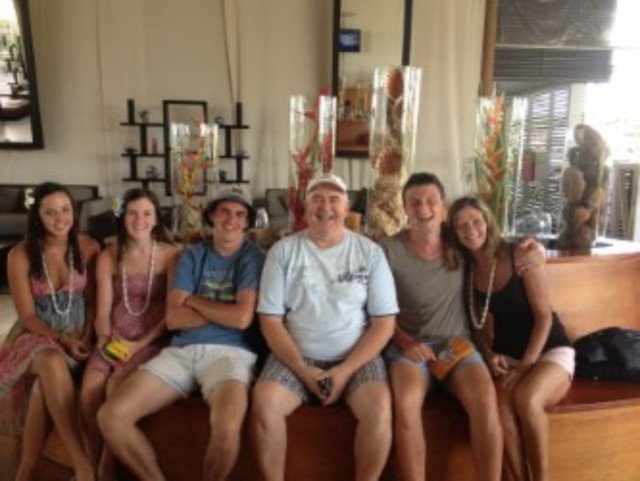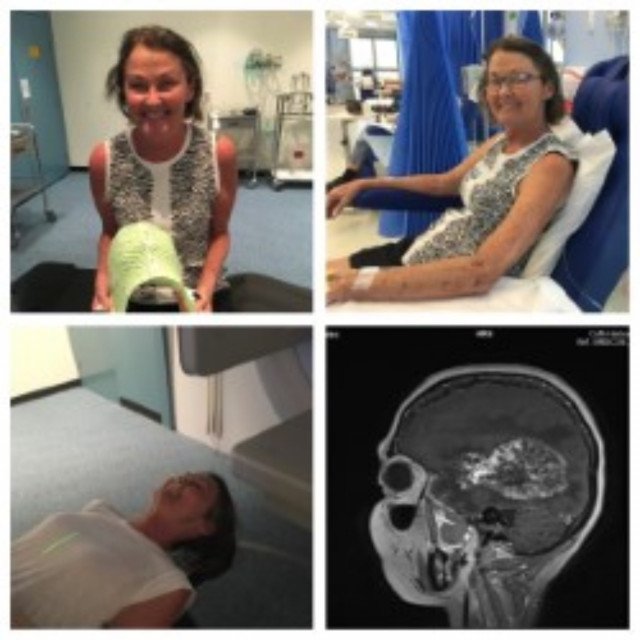My wife, Jenelle Ramstadius, was diagnosed with Glioblastoma Multiforme (GBM) after developing a speech issue at her work at a retail outlet in Coffs Harbour on the 19th October 2015.
A CT scan and MRI at the local hospital confirmed a lesion on her left temporal lobe and she was air-lifted to Sydney, to North Shore Private Hospital where the majority of the lesion was subsequently resected, and diagnosed as GBM - Grade 4 malignant brain cancer - on 30 October 2015.
From that point on Jenelle commenced the familiar journey that is the standard of care for this particularly aggressive, though quite common, form of brain cancer. Radiotherapy and chemotherapy, endless medications, and a myriad of side-effects became the day-to-day norm. The terminal nature of the disease, and the related lack of successful treatment options, meant that from the beginning we knew she had a finite time left on this earth but the exact duration was up to her tumour to decide for her.
We tried numerous other traditional treatments during the course of her disease progression (nitrosoureas, monoclonal antibody and re-irradiation), and she also participated in an immunotherapy clinical trial targeting the cytomegalovirus in her tumours with her own regrown T cells at Wesley Hospital in Brisbane. She fought bravely and resolutely, and somehow managed to remain in good spirits throughout her battle, but she progressed to the usual palliative care treatment regime towards the end following tumour reoccurrence, and passed away on 15 June 2017, 20 months into her journey.
While GBM is a common form of brain cancer, brain cancers are considered rare cancers and their prevalence is much lower than breast or prostate cancer or even melanoma which all seem to garner the lion's share of publicity and research funding. Recent improvements in treatment outcomes for these cancers are indicative of what can be achieved with appropriate funding focus like that advocated by the Mark Hughes Foundation.
The impact of this illness on our family (we had four children aged 17-25 at diagnosis) has been enormous, and ongoing, as you can imagine. It has had negative effects financially (I had to cease work to become her full time carer, and the cost of surgery and hospitalisation is expensive), emotionally (for each of the children to be losing their mother at relatively young ages), and socially, as the full time care of a GBM patient changes the whole dynamic of the family unit. It is a life-defining event and the journey is often referred to as the 'long goodbye'.
While information and support in relation to her condition was extremely good in most cases, what is needed is a concerted approach to investigating and finding a cure, or at the very least better treatments for this disease. There needs to be major increases in funding allocated to research and targeted clinical trials to ensure this occurs before too many more individuals suffer the same sentence as my wife, and their families are decimated by the experience. It is difficult to summarise what made Jenelle such an inspiration to our family, and to her friends, but her approach to her illness, and her selflessness during her treatment and home care, gave us all some first-hand insight.
Written by Peter Ramstadius (Jenelle's husband)

